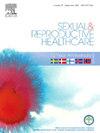“剥夺了我的自主权。”女性妊娠剧吐的经历与自我概念——一项定性研究
IF 1.7
3区 医学
Q3 PUBLIC, ENVIRONMENTAL & OCCUPATIONAL HEALTH
引用次数: 0
摘要
孕吐在生理、心理和社会经济层面上影响着妇女的健康,她们需要得到家人和医疗服务提供者的认可。妊娠剧吐在历史上曾与癔病联系在一起,但由于人们始终认为这是一种心理问题,因此妊娠剧吐可能仍会受到鄙视。为了加深了解这种疾病对妇女健康的影响,本研究旨在探讨妇女对孕吐的体验和自我概念。研究方法从社交媒体平台上招募参与者,招募标准如下:i) 患有孕吐的瑞典妇女,在怀孕第 22 周前发病;ii) 在过去四年内分娩;iii) 在患病期间接受过静脉输液治疗。通过 15 个数字、个人、半结构化、深度访谈收集数据,并采用反思性主题分析法对数据进行分析。大多数人在访谈前 12-36 个月内经历过 HG,并与伴侣同住。总体主题 "剥夺了我的自主权 "描述了女性从负责任、可靠和勤奋工作的女性转变为认为自己没有权力、没有优先权和依赖性的女性的过程。医疗保健专业人员的忽视态度可能会导致自我污名化、孤立和社会支持率低。医疗保健专业人员必须认识到轻视行为的影响,并实施认可和授权支持结构。本文章由计算机程序翻译,如有差异,请以英文原文为准。
“Deprived of my autonomy.” Women’s experiences and self-concepts of Hyperemesis Gravidarum − A qualitative study
Objective
Hyperemesis Gravidarum affects women’s health on a physical, psychological, and socioeconomic level, and they express a need for acknowledgement from family and healthcare providers. Historically associated with hysteria, Hyperemesis Gravidarum may still be stigmatised due to lingering perceptions of it as a psychological issue. To enhance understanding of the disease’s impact on women’s health, this study aimed to explore women’s experiences and self-concepts of Hyperemesis Gravidarum.
Methods
Participants were recruited from a social media platform with the following criteria: i) women in Sweden with Hyperemesis Gravidarum who debuted before week 22 of pregnancy, ii) who gave birth within the last four years, and iii) who received intravenous fluid therapy during their illness. Data were gathered through 15 digital, individual, semi-structured, in-depth interviews and were analysed with Reflexive Thematic Analysis.
Results
The mean age of participants was 32. The majority experienced HG within 12–36 months before the interview and were living with a partner. The overarching theme, “Deprived of my Autonomy”, depicts the woman’s transition from being responsible, reliable and hard-working to becoming a woman who perceived herself as disempowered, unprioritised and dependent.
Conclusion
The women experienced a new perception of themselves as unable to meet their own and others’ expectations in managing pregnancy, family, and work and as individuals disbelieved by the healthcare system. Healthcare professionals’ neglectful attitudes may contribute to self-stigma with isolation, and low social support as a result. Healthcare professionals must recognise the impact of dismissive behaviour and implement validating and empowering support structures.
求助全文
通过发布文献求助,成功后即可免费获取论文全文。
去求助
来源期刊

Sexual & Reproductive Healthcare
PUBLIC, ENVIRONMENTAL & OCCUPATIONAL HEALTH-
CiteScore
2.70
自引率
5.60%
发文量
73
审稿时长
45 days
 求助内容:
求助内容: 应助结果提醒方式:
应助结果提醒方式:


